Higher education in the construction of life projects in the post-conflict
Keywords:
law, higher education, civil society, human rights, state, violence.Abstract
This article, which is mainly of a reflexive type has elements taken from several investigations on the subject of violence, is written in a conjunctural and historical moment for our country, although few have dared to recognize the end of one of the actors of the conflict, the oldest guerrilla of the continent; There is a fundamental factor for this process to achieve the objectives proposed, and it plays a preponderant role, education from all levels, but mainly the higher, to build life projects and to build the pedagogy of peace. The transformation from the academic, with a holistic view, in which education becomes alive and acting in the respect of human rights, and specifically of the fundamental rights, as some authors call them, rights of first generation, but in the Context, what is important is the realization of these rights and the true changes of social justice. In this context, we want to bring as an example, experiences of young people who were given the opportunity to study a professional career, avoiding they were part of drug trafficking, hired killers and the culture of easy money; To this end, the construction of the University Institution of Envigado was started, giving legal existence at the time of one of the deepest crises traversed by Colombian society, where the phenomenon of drug trafficking and violence increased everyday invading all the orbits of society, where it stands as a generator of life projects, and therefore peace processes, on how, through education, the changes and the construction of Future, purpose in which the academy takes the initiative and the dialogical paradigm, being the column to discuss and transform societies.
References
Gómez, C. (2007). Los objetivos de desarrollo del milenio y la cooperación descentralizada. En Cuadernos Bakeaz. (83). Recuperado de http://centroderecursos.alboan.org/ebooks/0000/0943/Bakeaz_83.pdf
Gómez–Galán, M. (2011). Los derechos humanos y el desarrollo: hacia un camino compartido. En Mariño Menéndez, F. M., Faramiñán Gilbert, J. M. y Gómez–Galán, M. (2011). Los derechos humanos en la sociedad global: mecanismos y vías prácticas para su defensa. (315-339). Madrid: CIDEAL, 2011.
González, A. (2007). Incidencia de Cooperación Internacional en Política Pública: Caso de la política de educación para la paz en Colombia. Bogotá: Alianza Educación para la Construcción de Culturas de Paz. Recuperado de: http://educacionparalapaz.org.co/es/documentos2/incidencia-de-cooperacioninternacional-en-politica-publica-caso-de-la-politica-de-educacion-para-lapaz-en-colombia
Méndez, N. y Casas, A. (2009) Educación para la paz, cultura política y cambio social: un análisis empírico del programa “Aulas en Paz” desde el institucionalismo cognitivo. Desafíos (21), 97-134. DOI: https://doi.org/10.1017/s1537592704000635.
Meza, C. (2016). Los estigmas y la cátedra de la paz. Recuperado de: http://www.ideaspaz.org/publications/posts/1273
Taborda, J. (2012). Debates sobre cooperación internacional para el desarrollo. Bogotá: ELACID. Recuperado de http://bibliotecadigital.usbcali.edu.co/ jspui/handle/10819/831
Universidad del Rosario (En línea). Qué es Cooperación Internacional. Recuperado de: http://www.urosario.edu.co/Internacionalizacion/Oportunidades-Cooperacion-Internacional/Que-es/




